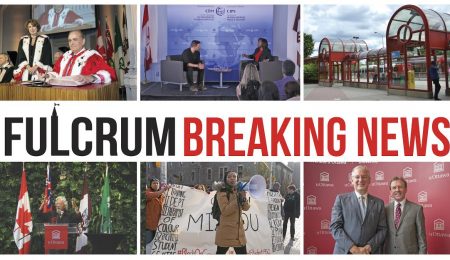University’s institutions to contribute to multilingualism research
THE UNIVERSITY OF Ottawa has been selected as one of 12 international institutions to participate in a three-year Languages in Urban Communities: Integration and Diversity for Europe (LUCIDE) project. Funded by a €500,000 (CDN$690,000) grant from the Lifelong Learning Program of the European Union (EU), the project aims to better understand multilingualism in cities.
“The LUCIDE project involves an interest in what happens, linguistically speaking, in cities,” said Richard Clément, the director and associate dean of the Official Languages and Bilingualism Institute (OLBI) at the University of Ottawa.
“Not in terms of transformations of languages, such as sociolinguists would be interested in, but mostly in terms of how you manage a city where multiple languages are present.”
OLBI, along with the U of O ‘s Centre on Governance, have been invited to take part in the international research initiative.
“It’s a very exciting project because it brings together a huge number of major research institutes around Europe, and very luckily for us, we’re one of the two third-country partners on the project,” said Caroline Andrew, director of the Centre on Governance and political science professor at the University of Ottawa.
Out of the long list of institutions involved in LUCIDE, the University of Ottawa and the University of Melbourne in Australia are the only institutions located outside of Europe, allowing the two universities to provide important perspectives on the global questions that will be asked at the project’s conferences.
“What is unique about [Canada] is that we have to deal with issues within an officially bilingual country,” said Clément. “There is an overarching constitutional right of French and English minorities, so that changes the way we do things at the municipal level because we have that umbrella. That’s not the case at all in European countries, which could very well be like France, which is completely unilingual, but [still has] to deal with major cities.”
The two institutions from the University of Ottawa will be contributing by attending international conferences that discuss multilingual successes and issues in cities and providing data for the project’s questionnaires. To better participate in the LUCIDE project, plans to establish a Canadian network of multilingualism researchers are being put forth for the project.
“What we want to [create] is a small network, but of people in a variety of the cities,” said Andrew. “We particularly want to look at the big cities across Canada.”
—Keeton Wilcock



